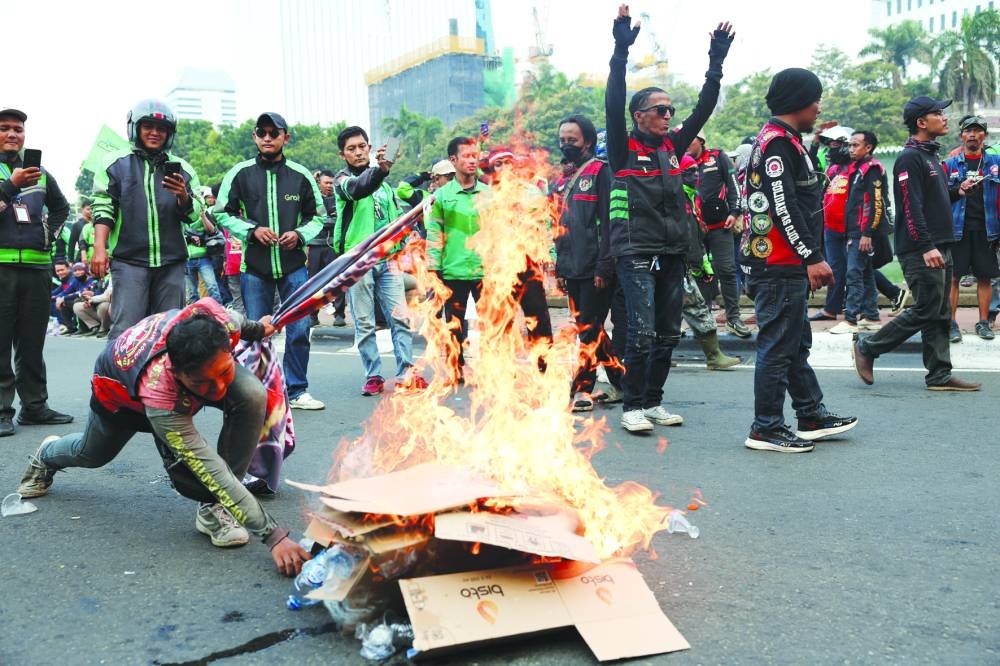More than 1,000 motorcycle taxi drivers staged a strike in several Indonesian cities yesterday to protest against low pay, and called on the government to provide more protection against what they say are unfair practices by ride-sharing companies.
Drivers wearing trademark green jackets gathered outside the communications ministry and near the Jakarta offices of Indonesia’s largest technology company GoTo and Southeast Asia’s biggest ride-hailing and food delivery firm Grab.
Motorcycle taxis are ubiquitous across Indonesia, including in the capital Jakarta, known for some of the world’s worst traffic congestion, and the protests prompted some complaints on social media of slow services.
A spokesperson for GoTo’s ride-hailing unit Gojek said yesterday that its operations were running as normal, and that it was open to drivers’ input.
Grab’s tariffs were designed to ensure stable demand for its services, while keeping in mind drivers’ earnings, said Tirza Munusamy, chief of public affairs for its Indonesian unit.
The Singapore-based company did not respond to a query about whether the strike disrupted its operations.
Drivers want ride-hailing firms to raise the share they get for every trip from 80% now and for the government to give special status for their terms of employment so they have more bargaining power over fees, said Andi Kristiyanto, a representative of the National Online Taxi Coalition, which arranged the protest.
Driver Wandi said he worked for 10 hours daily but made less than 150,000 rupiah ($9.73) most days.
This means his income is below Jakarta’s minimum wage of 5mn rupiah ($324.5) per month.
“We want platforms to listen to us,” said Wandi, who gave only one name.
GoTo and Grab offer ride hailing, food delivery, and other services in several Southeast Asian countries, and have a combined market capitalisation of about $18bn.
The companies recognise drivers as partners, so they do not have the legal obligation to set minimum wages, pay social security insurance or limit working hours, said Nabiyla Risfa Izzati, a labour law lecturer at University of Gadjah Mada.
“It’s right to push the government so that it is the one that regulates the companies,” she said, adding it needed to set floor and ceiling fees across all industries for the drivers, such as ride hailing and food delivery.
Indonesia’s manpower ministry did not immediately respond to a request for comment, while the transport ministry said it did not regulate fees, urging platforms to listen to drivers.

Motorcycle taxi drivers working for online ride-hailing start-ups protest against low tariffs in Jakarta. – Reuters
